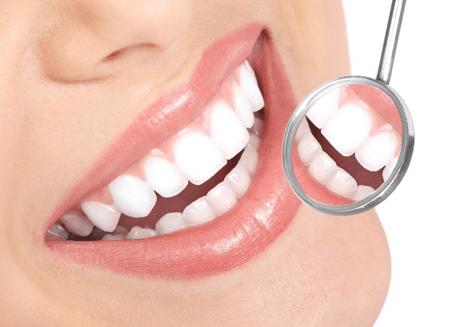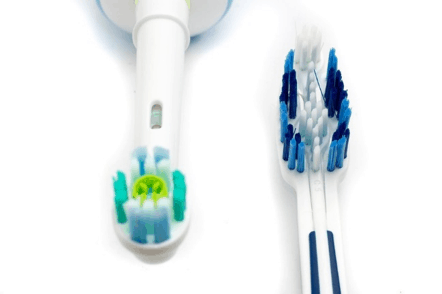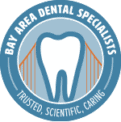
Preventative dentistry refers to a combination of professional treatments and personal dental hygiene habits to reduce the risk of dental disease. There are numerous benefits to preventative dentistry — the most important of which being that it helps preserve your natural teeth and the confidence that comes with having a complete, attractive smile. Preventative dentistry services make it possible to detect any impending problems in their early stages, when they are more easily treatable with less-invasive measures. Ultimately, preventative dentistry can save you time, money and peace of mind by reducing your chances of serious dental problems.
Dr. Ashwini Bhave and our entire team believe in taking a proactive approach to dental health. By adopting certain at-home habits and seeing us regularly for professional services, you can maintain your dental health and enjoy a healthy smile for life.
Dental Exams and Cleanings
Any preventative dentistry routine should include regular dental exams and cleanings. During an exam, Dr. Bhave checks all of your teeth and the rest of the tissues inside your mouth for signs of decay, disease or other problems. X-rays may be taken to get a better look at the inside of your teeth and areas between your teeth.
Dental cleanings with a hygienist remove plaque and bacteria that have accumulated in your mouth and cannot be removed with brushing or flossing. Special tools and equipment are used to thoroughly clean your teeth and gums, guarding them against infection.
Most patients benefit from a cleaning and exam every six months; however, you may need more frequent cleanings based on your oral health and any existing problems.
Fluoride Treatments
Fluoride is a naturally occurring mineral known to rebuild tooth enamel and reverse early signs of decay. Fluoride can be taken systemically by drinking fluoridated water or taking a fluoride supplement. Or, it can be applied topically to the teeth through the use of certain toothpastes or mouth rinses. Professional fluoride treatments performed in our office coat your teeth in fluoride to protect and strengthen your enamel.
Dental Sealants
Sealants are thin plastic coatings painted onto the grooves of the teeth to guard against bacteria that leads to tooth decay. Common in children, sealants can also be placed on adults with a history of tooth decay or weak tooth enamel.
Home Preventative Dental Care

Developing healthy at-home hygiene habits plays a big role in preventing cavities, gum disease and other dental problems. The foundation of a healthy at-home hygiene routine is brushing your teeth twice a day and flossing daily. Other habits may include using a mouthwash after flossing, wearing a mouth guard when playing sports or wearing a night guard if you grind or clench your teeth at night. Making smart dietary choices and avoiding foods that can harm your tooth enamel and lead to cavities is also wise.
Preventive Dentistry FAQ
Are fluoride toothpaste and mouthwash enough to protect my teeth?
Fluoride can help prevent cavities and decay in children and adults alike and is a great preventative measure. However, while products containing fluoride should be incorporated into your dental hygiene practices, they are no substitute for the care of a dental professional. Regular dental appointments, as well as great oral hygiene, are both parts of a comprehensive dental care plan. You still need regular cleanings, X-rays, and examinations to ensure you keep a great smile for life.
How important is flossing?
If you are not flossing regularly, your teeth may not be as clean as they can be. Dental floss, when used correctly, can access the hard-to-reach area below your gum line to remove harmful plaque. It is important to note that there is a correct way and an incorrect way to floss your teeth. The dental experts at Bay Area Dental Specialists can demonstrate how to floss your teeth the right way to the maximum benefit.
Can sealants be used in place of fillings to treat cavities?
Dental sealants and fillings have different uses. Dental sealants can be used to protect the teeth against decay, while fillings are used after decay has occurred and are intended to treat cavities. If you are unsure which treatment you may need, Dr. Bhave can provide additional clarity and recommend an appropriate solution for you.
Are dental X-rays safe?
Dental X-rays are used to help Dr. Bhave identify issues with your oral health, such as cavities, damage, and gum disease. The radiation risk from X-rays is small and is comparable in volume to the radiation you may receive from smartphones, or the Earth itself. X-rays are an essential part of dental exams and your overall oral health. If you have concerns about X-rays, Dr. Bhave can help you understand the risks and benefits to help you make an informed decision.
Why do I need to get X-rays?
X-rays can detect a number of oral health conditions, including:
- Small areas of decay
- Bone loss
- Infection
- Teeth position (including impacted teeth)
- Abscesses
- Cysts
What are the benefits of preventative dentistry?
Preventative dentistry can help lower your risk of developing damaging oral health conditions, like gingivitis. It also supports good dental hygiene practices, like flossing regularly and using a fluoride mouthwash. Additionally, early intervention of dental issues, such as those detected by X-ray, can be addressed and treated before further damage can occur.
Can I prevent gingivitis?
If you are concerned about gingivitis, there are preventative measures you can take to reduce your risk of developing this oral health issue. This mild stage of gum disease can cause irritation and swelling around the gum. Although it can be treated, it is best to be proactive about protecting your teeth from gingivitis. Good dental health habits, like regular checkups, brushing twice daily, and flossing, can prevent gingivitis. During your dental checkups, Dr. Bhave can identify signs of gum disease and recommend actions and treatments to reverse or help you avoid it entirely.
How often do I need dental checkups and teeth cleanings?

What does the dentist check for during a dental exam?
During your dental exam, Dr. Bhave and our dental professionals will look for tooth decay and gum disease and identify areas of concern that may need treatment or monitoring to see if the decay progresses at your next appointment. The goal of these checkups is to stay ahead of dental problems. X-rays may be taken to allow our dentist to see what’s going on under the surface of the teeth and gums, and these X-rays are typically updated once a year to examine the inner tissues and bone and identify changes. When dental issues are diagnosed and addressed early, they lead to less expensive and less painful treatments.
Do I need fluoride treatments if I use fluoridated toothpaste?
Adults and children benefit from fluoride treatment. According to the ADA, drinking water containing fluoride can reduce the risk of cavities by 25%. The organization recommends protecting teeth by drinking fluoridated water for intrinsic exposure and using toothpaste or mouthwash containing fluoride for extrinsic exposure. Professional fluoride treatments use higher concentrations than toothpaste and mouthwash, adding further protection. Dr. Bhave may recommend regular fluoride treatments in addition to over-the-counter or professional-grade fluoridated toothpaste.
Can a dental sealant work in place of a filling?
A dental sealant is a coating applied to the chewing surfaces of teeth to prevent the grooves and pits from trapping bacteria and food debris. The thin liquid is painted onto the tooth, then cured and hardened. Dental sealants lower the risk of cavities for children and adults but do not address existing dental caries. The only way to stop tooth decay from progressing is to remove the cavity and fill in the area with a tooth-colored filling, inlay or onlay, or dental crown.
How often are oral cancer screenings necessary?

Why do cavities form?
Cavities, also called dental caries and tooth decay, form for many reasons. Poor dental hygiene is a large contributing factor combined with bacteria in the mouth and a diet rich in sugary snacks. Dry mouth and medical conditions such as diabetes may also contribute to cavity formation. Bacteria create acids that degrade tooth enamel and create holes in teeth (cavities). Regular dental checkups and teeth cleanings can prevent cavities and ensure they’re treated when necessary to prevent tooth decay from worsening and leading to tooth loss.
You may have a cavity if you experience tooth sensitivity with sugary, hot, or cold foods or beverages, tooth pain, and abnormal tooth stains on the affected tooth. Contact our dentist in San Jose if you have these warning signs of tooth decay.
Contact Us for Bay Area Preventive Dental Care
If you would like us to help you keep your teeth and gums healthy and disease-free, please get in touch with us by calling or sending us an email today. We look forward to working with you!



